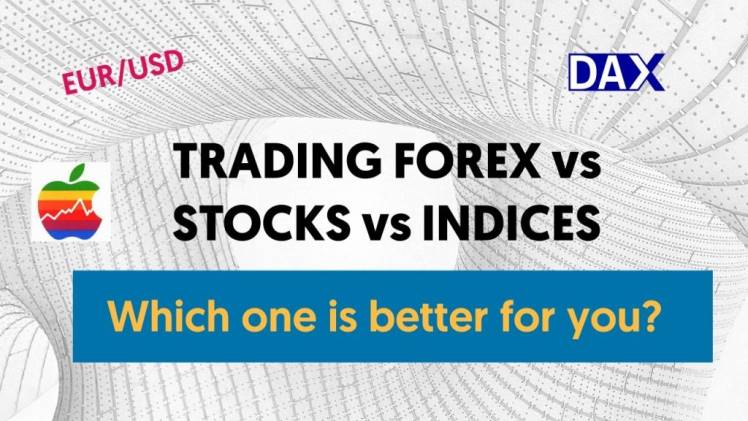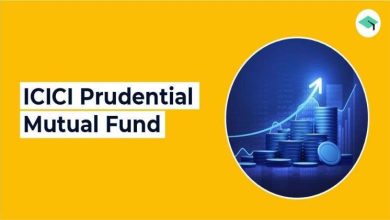Finding the Perfect Global Broker for Your Forex, Stocks, and Index Trades

Are you looking to trade global markets like forex, stocks and indices? Having the right broker can be essential to successful investments. With so many brokers available, it’s easy to feel overwhelmed when selecting the best one for your trades.
In this article, we’ll discuss everything you need to consider while choosing a global trading broker suited for your financial goals. From researching requirements and regulatory licences to finding competitive spreads and fees – we’ll make sure you know all the facts so you can find success in trading with confidence.
Understand the Different Types of Global Brokers Available
When investing in the global market, choosing the right broker is paramount. However, with an array of global brokers available, understanding the different types can take time and effort. Global brokers can be classified into two main categories; full-service brokers and discount brokers. A full-service broker offers comprehensive investment services, including research and advisory services, but at a higher commission rate.
On the other hand, a discount broker offers fewer services at a lower commission rate, and investors are responsible for making their investment decisions. By understanding the different types of global brokers, investors can make informed decisions that align with their investment goals and budget. ADSS, for example, is a well-established global broker providing full-service and discount services.
Research the Reputation of Each Broker
Once you’ve decided on the type of global broker to use, it’s essential to research their reputation. Check out reviews and ratings online to understand their service level, customer experience, and how well they execute trades. Additionally, review the terms and conditions before signing up, as this will help determine any hidden fees or charges that may not have been disclosed initially.
It’s also important to check if the broker complies with necessary financial regulations in your region. For example, brokers should be registered with the Securities Exchange Commission (SEC) in the US or similar regulatory bodies abroad, such as CySEC in Cyprus or ASIC in Australia. It is an important step that helps protect your investments from any potential scams.
Analyse Platforms and Services Offered by Each Broker
The trading platform, or software, is essential when selecting a global broker. Most brokers offer proprietary tools and platforms like MetaTrader 4 and 5, NinjaTrader, CQG, etc. Research each platform’s features to understand which will best meet your trading needs. Examples of features to look out for include charting capabilities, types of order entry, order execution speed and other advanced features that will enable you to make sound decisions based on market conditions.
In addition to the trading platforms offered by global brokers, it’s also essential to analyse the services they provide. Some brokers may have additional offerings, such as online education or market analysis tools, that can benefit novice traders. Also, having access to customer service is an important consideration, as you’ll need prompt assistance in case of any technical issues or trading-related problems.
Make Sure the Brokers are Regulated in Your Country
It’s crucial to ensure the broker you’re considering is regulated in your country. It will help protect your investments as the broker adheres to the regulatory body’s specific standards and practices. Additionally, working with a regulated broker gives you access to legal protection should any issues arise from trading activities.
Therefore, make sure to check if the brokers are registered with local financial regulators such as FINRA (US), FCA (UK) or SEBI (India). Doing so will also ensure that all trades made with the broker are conducted within regulations set forth by these bodies.
Check into Fees and Commissions Charged by Each Broker
When you’re ready to start trading, it’s essential to look into the fees and commissions charged by each broker. Some brokers may have hidden costs, such as account maintenance fees or other transaction charges, that can add up quickly. Additionally, compare the spreads different brokers offer, as this will determine how much money is made from successful trades.
It’s also worth checking for any special offers or discounts for new customers. For instance, some brokers may offer a bonus or lower trading fees on specific markets when opening an account with them. Taking advantage of such offers can help save money in the long run.
Look at the Leverage Offered by Each Broker
Leverage is a powerful tool that can help increase potential returns while trading in global markets. However, it’s essential to understand how leverage works and its associated risks before deciding on a broker. Different brokers may have different limits for maximum leverage, so do your research and select one that suits your investment goals and risk appetite.
Additionally, check if the broker allows hedging and scalping, as many global traders use these strategies. Hedging allows investors to protect their capital from potential losses, while scalping enables traders to open and close multiple positions quickly.




